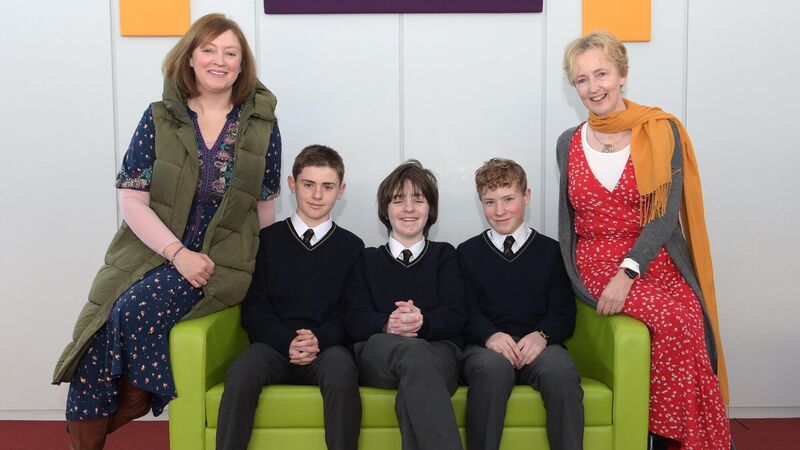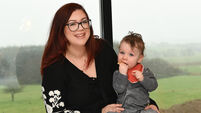Course supported by Cillian Murphy teaches young people empathy and 'builds solidarity'

Pupils of Douglas Community School, Cork who are taking part in the Activating Social Empathy programme (supported by Cillian Murphy) . Included are teachers, Claire Moylan and Niamh Craig with first year students Ethan O'Leary, Odhrán Brennan and Seoirse Norris. Picture Dan Linehan








